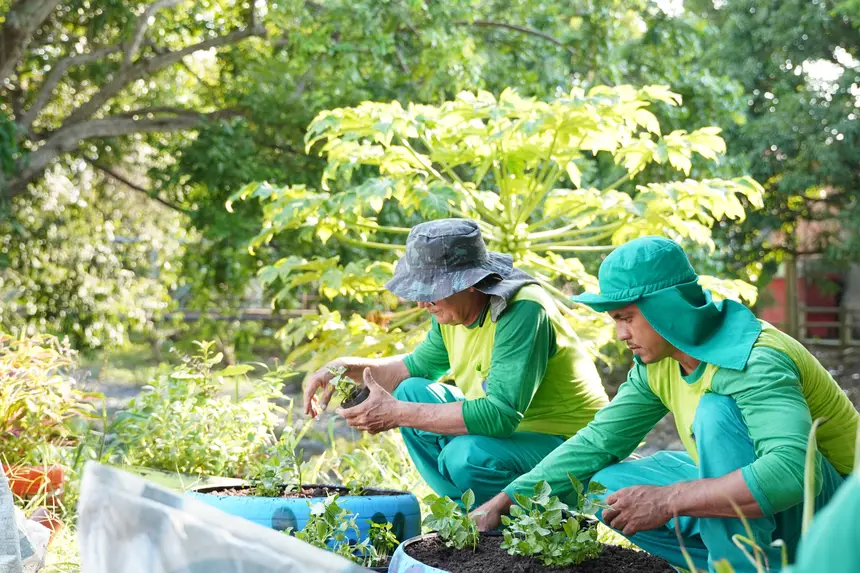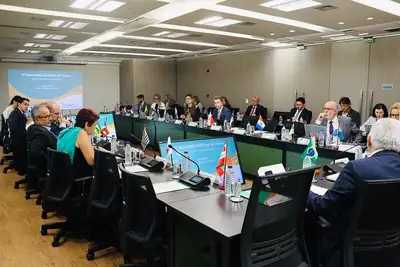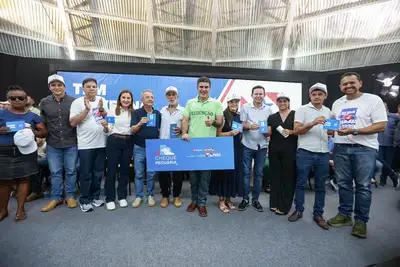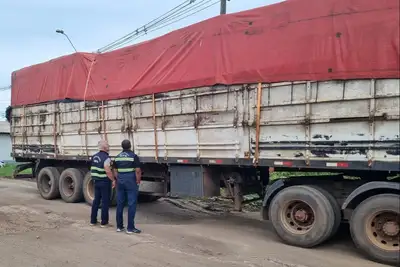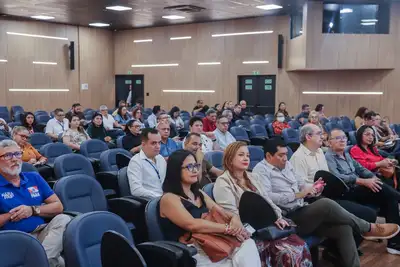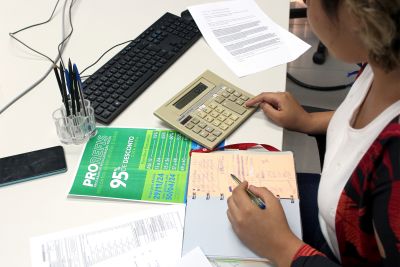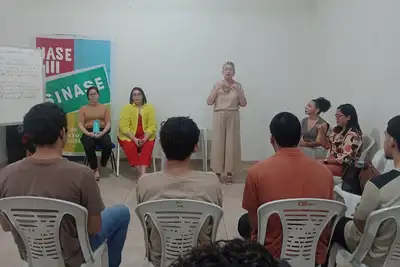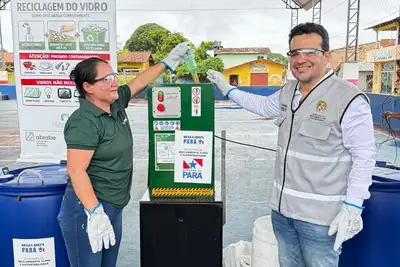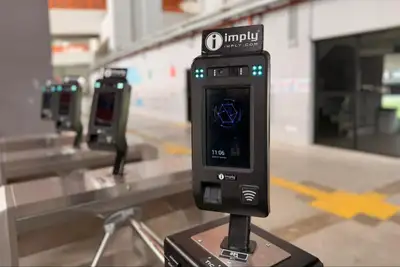CIIR strengthens actions committed to caring for the environment in Belém
The Integrated Center for Inclusion and Rehabilitation (CIIR) has a garden in the community and the 'Reuse Fair', collective and sustainable practices in the surroundings of the institution
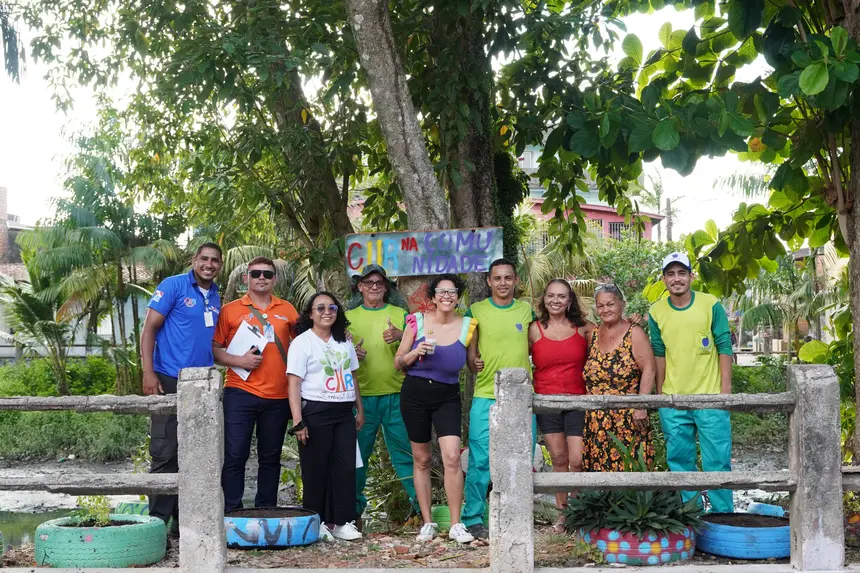
The Integrated Center for Inclusion and Rehabilitation (CIIR), through the Sustainability Commission, carried out another action of the 'Garden in the Community' this week, a project aimed at promoting green areas, encouraging collective care, and stimulating sustainable practices in the surroundings of the institution.
During the environmental education action, which is part of the 'Garden with the Community' and took place in the Barreiro neighborhood in Belém, vegetables such as basil, green onions, spinach, and jambu were planted in tires customized by the Visual Arts workshop at CIIR. The partnership between collaborators and residents reinforces community engagement in preserving public spaces and raising environmental awareness.
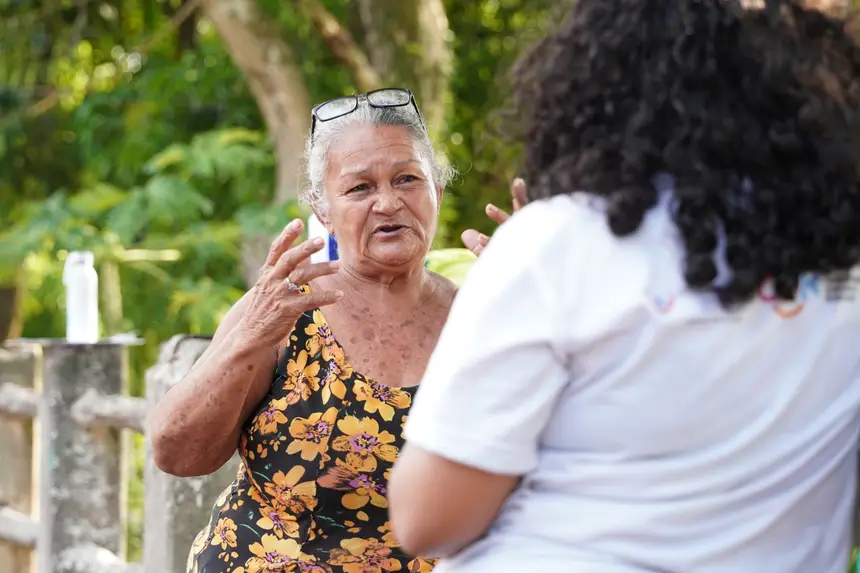
Since September 2024, when activities began in the community, residents have participated in different initiatives, such as workshops on ecological soap and soap making.
The positive impacts are visible throughout the community where nursing technician Francileide Pinheiro has lived for 40 years. She reports that the area, along the São Joaquim canal, was previously plagued by illegal waste disposal. “I have been following and participating in the commission's actions since the beginning, and today I see that this place has become a gathering point where elderly people meet, rest, and talk,” she said.
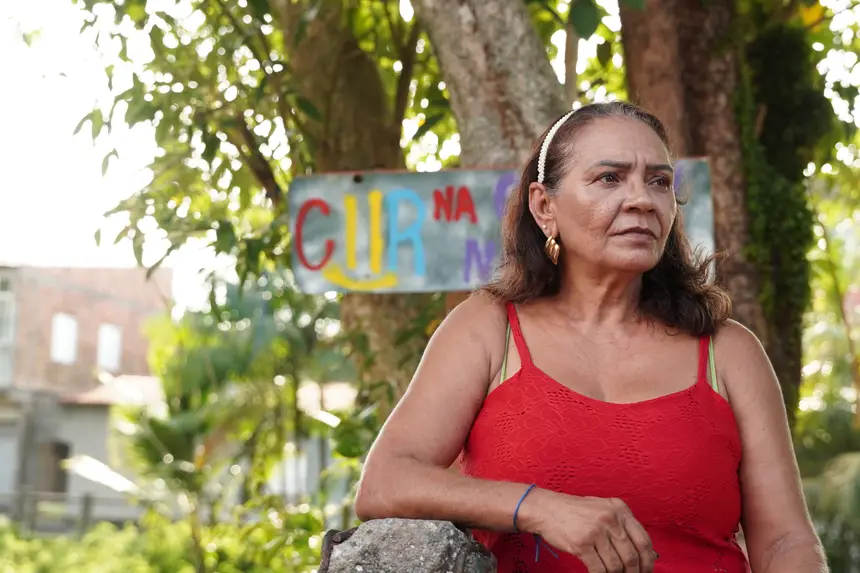
Even with her routine, Francileide sets aside time to help keep the space organized, picking up trash and watering the plants. “It’s a small effort, but it’s important that everyone is aware and helps to preserve. When the community embraces it, the results show,” she emphasized.
Sustainable Fair
In addition to external actions, CIIR also promoted the 11th edition of the Reuse Fair 2025 at the institution this week, a monthly initiative involving users, companions, and collaborators. The goal is to encourage reuse, circular economy, and responsible consumption, valuing sustainable practices within the institution. From January to November, 111 entrepreneurs participated in the fair, selling sustainable, handmade, repurposed, or low environmental impact products.
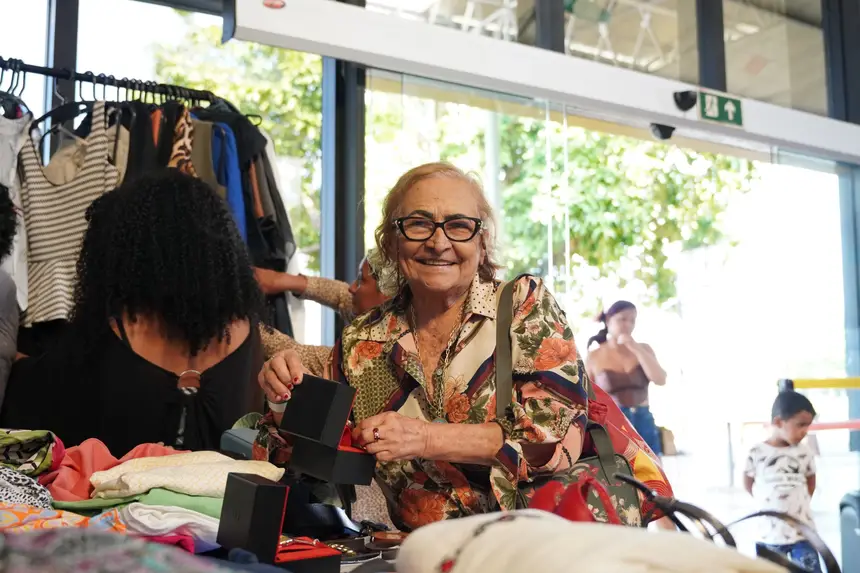
Among the visitors, Leonidia Calliari, a user of visual rehabilitation, took advantage of the break between appointments to explore the fair. “It was very good. Organic vegetables, nice and beautiful thrift store clothes, service rated 10. I came for an appointment, saw the activity, and got interested. I bought two blouses in good condition. The fair is a great opportunity for those who come for care and find sustainable utilities for everyday life,” said the housewife, who has low vision.
Connection with COP30
The actions developed by the Sustainability Commission throughout the year are directly connected to the values generated by COP 30 (30th United Nations Conference on Climate Change) in Belém. The conference reinforces the role of Amazonian cities in building climate solutions and the importance of practical, local, and continuous initiatives, exactly like those being implemented at CIIR.
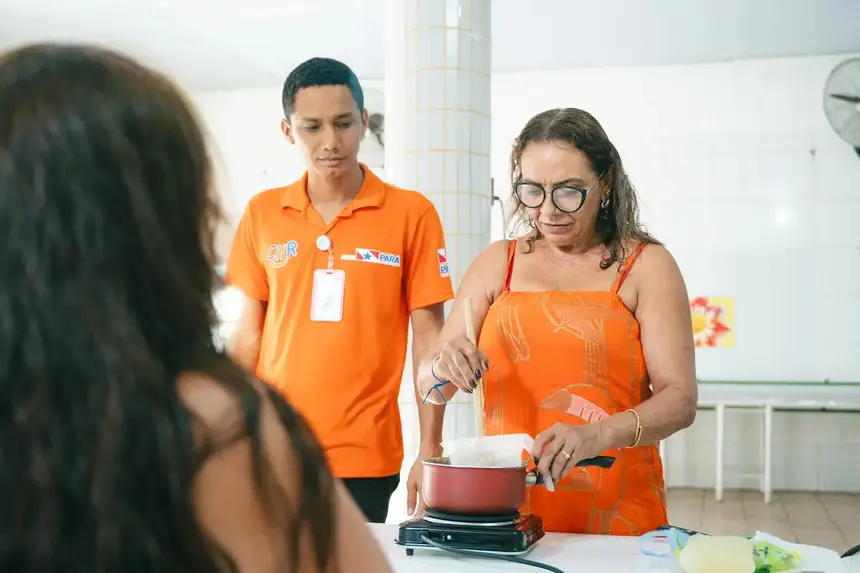
For the president of the Sustainability Commission, Denise Morais, the work developed by the institution reinforces this commitment. She highlights the sustainable practices developed by CIIR throughout the year.
“The Reuse Fair encourages reuse and the circular economy, reduces pressure on natural resources, and decreases waste generation. The Garden with the Community promotes ecological restoration, expands green areas, contributes to carbon capture, and strengthens food security. These actions directly relate to COP30, which emphasizes the need to accelerate local initiatives to achieve global goals.”
The conference emphasizes the union between climate justice, sustainability, and social participation. In this sense, CIIR's initiatives demonstrate how public institutions can integrate environmental practices into health care, involving users, workers, and residents around the Rehabilitation Center.
Reference – CIIR is a state reference in medium and high complexity assistance to people with visual, physical, auditory, and intellectual disabilities. Access to services is made through referrals from health units, via the Municipal Regulation Center, which directs requests to State Regulation. The user profile is analyzed by the State Regulation System (SER).
Service: CIIR is an agency of the Government of Pará, managed by the National Institute of Social and Human Development (INDSH), in partnership with the State Department of Public Health (Sespa). The unit is located at Rodovia Arthur Bernardes, 1000, Val-de-Cães neighborhood, in Belém. More information: (91) 4042-2157/ 58/ 59.
Text by Tarcísio Barbosa / Ascom CIIR



